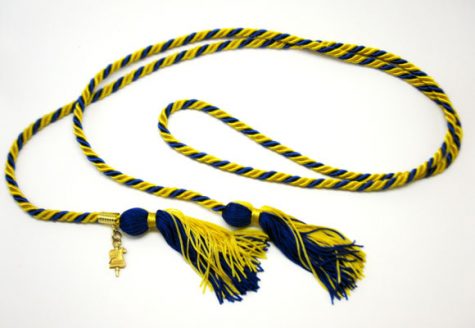THE WEEKLY SCROLL
January 24, 2020
News, tips and advice from Quill and Scroll
The Lede
Senate hears arguments in Trump trial
Day 2 of arguments ended Thursday in the U.S. Senate trial of President Donald Trump after Trump was impeached by the House of Representatives earlier this month.
So far in the three-day argument period, the Republican-majority Senate voted along party lines not to hear any new witnesses or to admit any new evidence in the trial of Trump, who was impeached on charges of abuse of power and obstruction of Congress.
The abuse of power charge relates to Trump’s alleged scheme to withhold billions of aid dollars and a president meeting from Ukraine unless that country’s president opened an investigation into former Vice President Joe Biden, who is running for president in the Democratic primaries.
The obstruction charges correspond with Trump’s successful attempts to keep current and former White House officials from testifying, and to keep documents from being released.
Democrats from the House, led by Rep. Adam Schiff (D-California) have been presenting the case against the president. They have taken up most of the time in the trial to date.
Friday’s session will mark the end of the argument period. You can watch live and without biased commentary, on C-SPAN, via cable or streaming on YouTube. The president’s attorneys will take center stage on Saturday, something the president noted early Friday in a tweet:
After having been treated unbelievably unfairly in the House, and then having to endure hour after hour of lies, fraud & deception by Shifty Schiff, Cryin’ Chuck Schumer & their crew, looks like my lawyers will be forced to start on Saturday, which is called Death Valley in T.V.
— Donald J. Trump (@realDonaldTrump) January 24, 2020
At the end of the trial — which is presided over by U.S. Supreme Court Chief Justice John Roberts — the Senate will vote. A two-thirds vote (67 senators) would remove the president from office. The Senate currently has 53 Republican senators, 45 Democratic senators and two independents.
Make no mistake, whether President Trump is removed from office or not, you are witnessing history in the making, and our democratic republic is on full display to the world. And young people are making their voices heard.
MTV News went to Washington, D.C. to hear what young people have to say about what’s going on. They interviewed several young people, including a 17-year old from Maine who said, “I think the role of young people is to stay angry. Even if it doesn’t go the way we want, stay angry so it doesn’t happen again.”
China locks down a city
In an attempt to prevent the spread of the deadly Coronavirus, the Chinese government locked down the city of Wuhan, which is the epicenter of the virus.
Here’s one American reporter’s story of his escape from Wuhan.
Writing about transgender persons
This post from The Radical Copy Editor is about two years old, but it’s never too late to review some basic rules of word use when writing about transgender persons at your school, in your community or in the public eye.
Here’s one key reminder:
“As trans people have fought for survival, we have also fought for the right to describe ourselves in our own language and to reject language that criminalizes, pathologizes, or invisibilizes us. Just as there is no monolithic trans community, there is also no one “correct” way to speak or write about trans people.”
It’s An Honor
2020 Writing, Photo and Multimedia Contest open until February 5
 Our Writing, Photo and Multimedia Contest is now open for entry until Feb. 5, 2020. This year, we’ve updated the contest so that it rewards students with the work they regularly produce in their newsrooms.
Our Writing, Photo and Multimedia Contest is now open for entry until Feb. 5, 2020. This year, we’ve updated the contest so that it rewards students with the work they regularly produce in their newsrooms.
Enter now at https://quillandscroll.org/writing-photo-multimedia-contest/. A form of payment must be completed at the time of entry. Online credit card payments must be completed by Feb. 5; purchase orders must be emailed to Quill and Scroll at the time of entry; and checks must be in our office by Feb. 14, 2020!
Nominate students now for Quill and Scroll Honors

It’s never too early to submit your school’s nominations for Quill and Scroll induction! Student memberships are coveted honors that award the top achievers in student journalism. Nominate your sophomores through seniors today!
As the spring semester continues, orders pour through our doors. Complete your orders for graduation cords and pins now to ensure quick fulfillment! We have both member and nonmember awards available.
They can be found at the bottom of this page.
Not too early to apply for Q&S scholarships
The scholarship forms for both students and advisers are open now.
For students, scholarships can be used for tuition, room and board at any college or university. Recipients must major in journalism or a related area of communications.
For advisers, Q&S identifies and rewards experienced journalism teachers and publication advisers who seek the opportunity to upgrade their journalism skills, teaching methodologies and advising techniques.
The scholarship forms for application are open until April 15 (advisers) and May 10 (students).
Chapter of the Year
Quill and Scroll this year will award its first Vanessa Shelton Chapter of the Year honor to a deserving chapter. The application process is simple and free, so there’s no reason not to enter. Here’s a link to the page describing the award and former Quill and Scroll Executive Director Vanessa Shelton. It’s also where you’ll find the entry form.
The 2020 Vanessa Shelton Chapter of the Year will receive:
- A trophy signifying the winning chapter’s achievement.
- One student from the chapter will be awarded a spot on the Quill and Scroll Student Advisory Board for the coming year.
- Memberships for five eligible staff members —including five pins and honor cords — in Quill and Scroll for qualifying students from the school (A $160 value).
Two podcasts coming up from Q&S
Quill and Scroll next week will release two podcast episodes.
The first will include an interview with photojournalist Barbara Kinney, who served as Hillary Clinton’s photographer both during Clinton’s time as First Lady and while she ran for president as the Democratic candidate in 2016.
The second will feature Kai Wright, an author and journalist who also hosts podcasts, including one called “The United States of Anxiety.”
Here’s a link to our Podbean channel, where you’ll find the podcasts.
What’s Viral?
Student Press Freedom Day
On January 29, 2020, students across the nation will celebrate Student Press Freedom Day, a day of recognition sponsored by the Student Press Law Center. This day celebrates the contributions of student journalists and focuses on the need for freedom in student publications from censorship.
The national day of recognition is celebrated on the anniversary of the Hazelwood School District v. Kuhlmeier decision, which allows school and community officials to censor student publications sponsored by the school. Students are unable to write about topics deemed inappropriate by school and community officials because of this decision. While a principal or community leader may find the topic to be insensible for a student publication, the topics are important to students, school and community.
The 2020 theme for Student Press Freedom Day is, “This Is What Student Press Freedom Looks Like.” The theme focuses on celebrating the hard work that goes into producing student journalism. Here are a few ideas on how to emulate this theme in your own newsroom:
- Research if your state has a “New Voices” grassroots campaign and brainstorm ideas of how to become involved in that campaign.
- Write an editorial discussing the need for press freedom in student news publications.
- Use the hashtag #StudentPressFreedom and share how your newsroom celebrates and works toward this idea.
More college admissions offices checking applicants’ social media
An end-of-the-year survey conducted by Kaplan, a test prep company, showed that more college admissions officers are looking at an applicant’s social media sites than ever before. The survey results found that 36 percent of 300 participants surveyed visited applicants’ social media sites in order to learn more about them. This is up 25 percent from 2018.
While some officers (38 percent) found the social media content to have a positive impact on their view of an applicant, nearly the same amount (32 percent) found the content to negatively impact their opinion of the student.
The use of social media in admissions processes is still widely debated, according to the officers surveyed by Kaplan. According to Sam Prichard, director of college prep programs for Kaplan Test Prep, “Our consistent advice to teens is to remain careful and strategic about what they decide to share. In 25 years, you’ll definitely remember where you graduated college from, but you’ll unlikely remember how many people liked that photo of what you did over winter break.”
The results serve as reminders for teenagers that what they post on social media does matter and can be seen by any audience. While there is no guarantee that content will be shown to potential college admissions officers or employers, the results of this survey reflect the importance of being aware of what you post online.
Prince Harry and Meghan Markle: royal to regular
On January 18, Buckingham Palace announced that both Prince Harry and his wife Meghan are required to step back from their royal titles (His/Her Royal Highness), duties, military appointments and public funding after agreeing to no longer publicly represent the royal family of Sussex. This comes after Harry and Meghan originally expressed unhappiness in a Tom Bradby interview regarding media hounding and handling the pressures of marriage in the environment of the royal family.
With the couple shedding their royal titles and duties, they will now be responsible for maintaining a living outside of what was given for their past royal duties, including appearances and military work. The couple has decided to split their time between living in North America and the United Kingdom.
The agreement will take effect in Spring 2020. Read more about the royal exit and logistics of the deal here.
First female coach in Super Bowl history
The San Francisco 49ers assistant offensive coach Katie Sowers will break history as the first female and openly gay coach to appear in Super Bowl history. The second female coach in NFL history, Sowers started as a training camp assistant for the Atlanta Falcons before joining the coaching staff of the 49ers in 2017. She is a previous member of the 2013 United State’s National Football Team and the Women’s Football Alliance.
Sowers was recently featured in a national commercial for the Surface Pro 7, reading an entry in a childhood diary expressing her desire to be a part of a real football team. Sowers told Outsports in 2017, “No matter what you do in life, one of the most important things is to be true to who you are… The more we can create an environment that welcomes all types of people, no matter their race, gender, sexual orientation, religion, the more we can help ease the pain and burden that many carry every day.”
If your daughter has a dream of being a football coach in the NFL… or a ballerina… or a professional soccer player.. or a teacher.. or a nurse.. or a doctor.. or an astronaut.. or even PRESIDENT.. just let her know this… She. Can. Do. It. And she will change the world.
— Katie Sowers (@KatieSowers) January 14, 2020
The San Francisco 49ers will play the Kansas City Chiefs on Feb. 2, airing on Fox.
Just A Thought
The New York Times tries transparency
News organizations for centuries in the United States have endorsed politicians for offices as huge as the President of the United States and as small as local school boards in rural school districts. Some of those endorsements have been arrived at on the whim of a single editor. Others require a team of seasoned professionals.
The New York Times — along with the Wall Street Journal one of the country’s most influential newspapers — has changed its course this year and has conducted its endorsement process for the Democratic presidential primaries as much in public as possible prior to the beginning of primary and caucus season in early February.
The Times editorial board again conducted interviews in its offices of every major Democratic contender. But this time, the 15-member board did it with cameras rolling, and debuted a 50-minute television show Sunday night to announce their choices: Sen. Amy Klobuchar (D-Minnesota) and Sen. Elizabeth Warren (D-Massachusetts). They also included a transcript of all their interviews both online in their Sunday printed newspaper editions.
Now they’re releasing daily podcasts to delve further into each of the issues championed by all the candidates, not just Klobuchar and Warren.
Student journalists have some thinking to do if you haven’t already begun to make decisions around endorsements:
- Should you make endorsements at all as an editorial board?
- Will your readers expect to read about whom you prefer and why?
- If you endorse, do you run the risk of being labeled by your readers as hopelessly right-wing or left?
- Should you just let individual columnists have their say?
- Do your readers even care about politics? (They should because politics affect them in nearly every area of their lives.)
If you’re still not sure what your editorial stance will be through the primary season and into next year’s general election, take some time to hammer out what your coverage will entail, in both news and opinion, and then stick to your principles.
And don’t hesitate to record your own editorial meetings if you think you’d like to show your audiences how you make important decisions about coverage. The world can always use another podcast, am I right?
